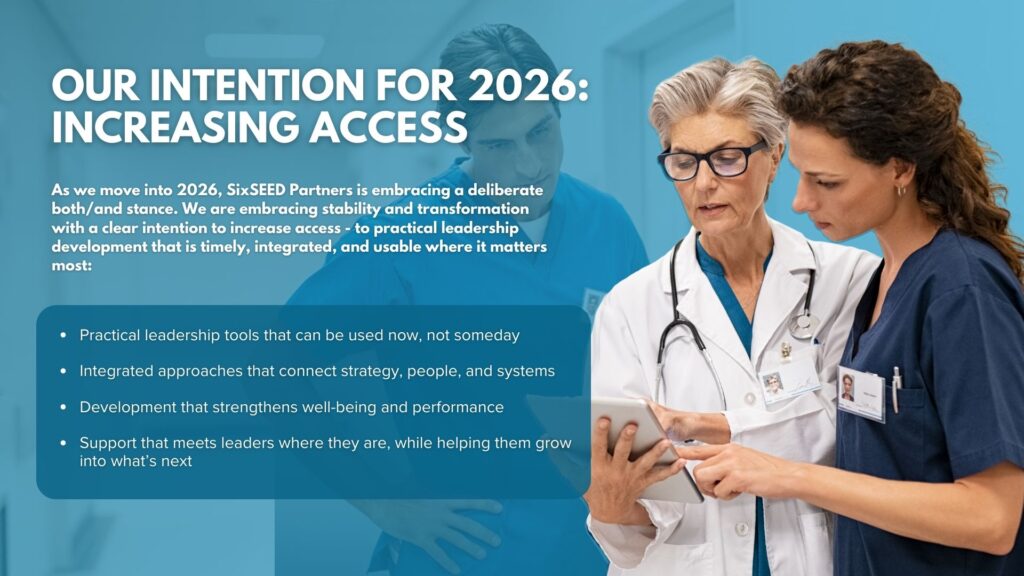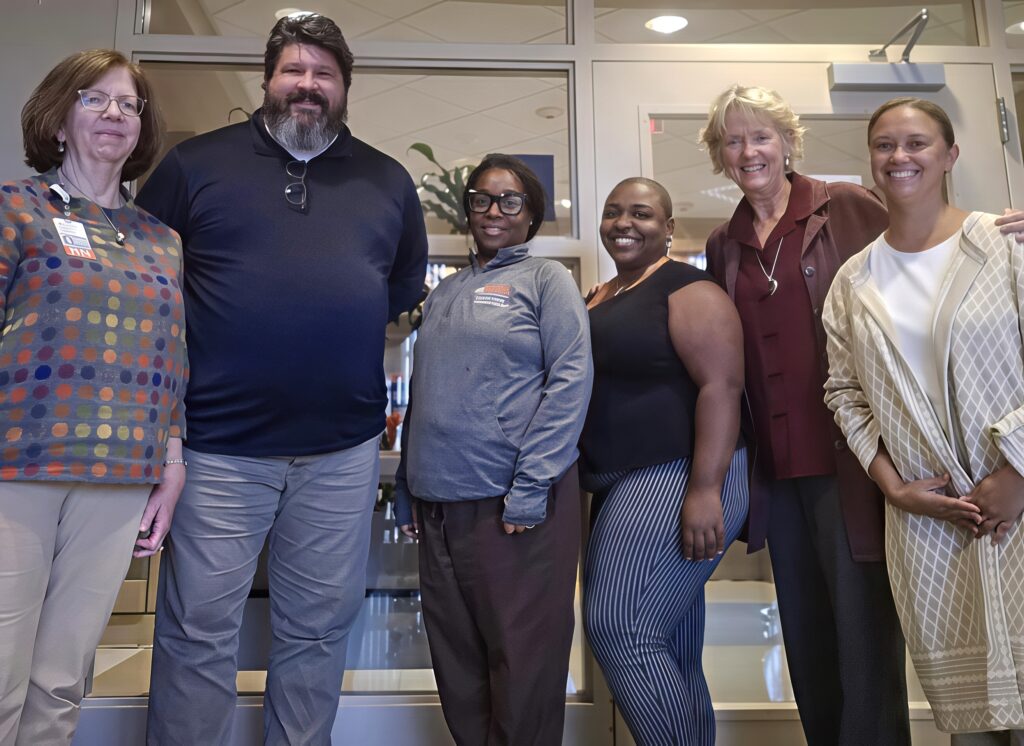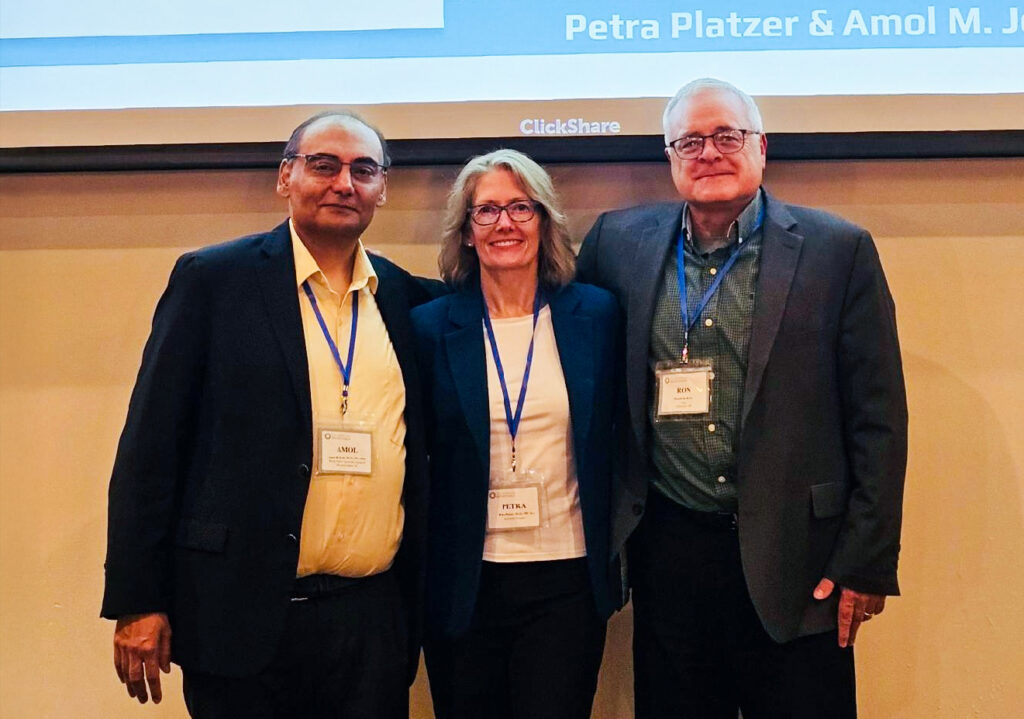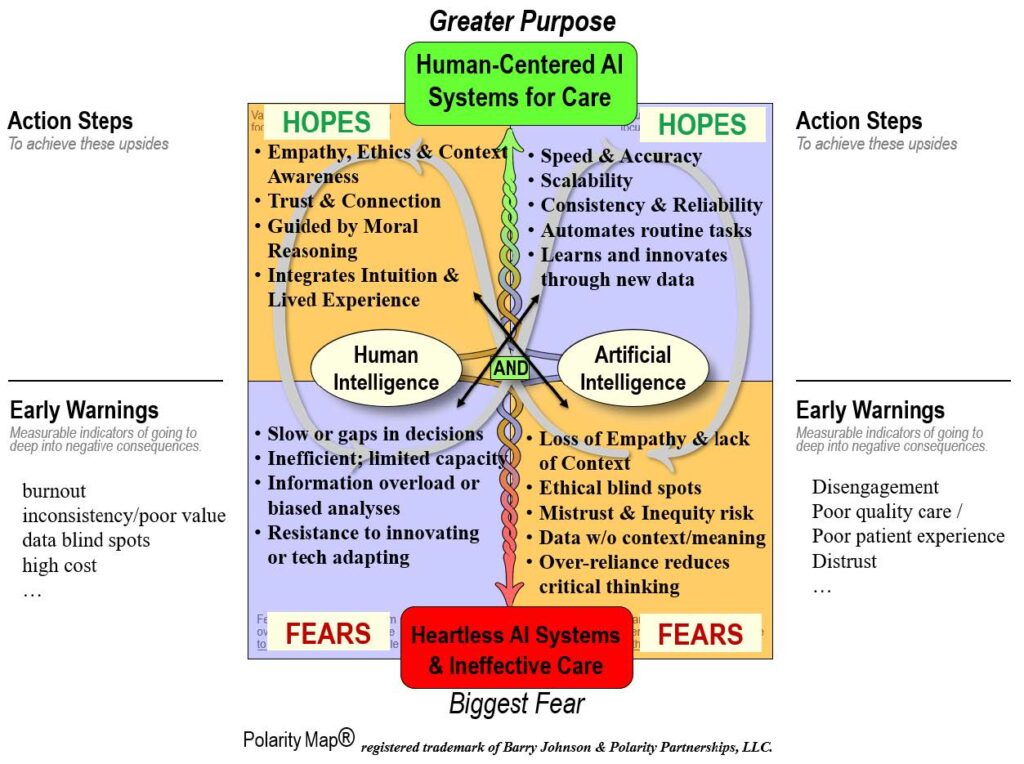Expanding Access to What Healthcare Leaders Need Most in 2026
Petra Platzer, PhD NBC-HWC, PCC: CEO SixSEED Partners
As we reflect on 2025, we are grateful for the trust our healthcare leaders and teams placed in SixSEED Partners during a year marked by ongoing complexity and constraint. One message came through clearly across our client work: what was most valuable were developmental tools and approaches leaders could apply in real time, in the middle of ambiguity, pressure, and rapid change.
We also heard variations of this common refrain: “This is exactly what we need, but we don’t have the time – or – our funding is uncertain.”
This reality is not peripheral to leadership today; it’s the context in which leadership must be practiced.
These statements reflect a tension we see across the field: the need for leadership development has never been greater, yet access to it often feels further out of reach.

Our Intention for 2026: Increasing Access
As we move into 2026, SixSEED Partners is embracing a deliberate both/and stance. We are embracing stability and transformation with a clear intention to increase access – to practical leadership development that is timely, integrated, and usable where it matters most:
- Practical leadership tools that can be used now, not someday
- Integrated approaches that connect strategy, people, and systems
- Development that strengthens well-being and performance
- Support that meets leaders where they are, while helping them grow into what’s next
In service to our mission of healing healthcare, we remain committed to attuning ourselves to our clients’ current realities and designing future-oriented pathways that build sustainable leadership capacity over time.
Continuing Our Core Themes – With Greater Reach
Our work in 2026 continues to be anchored in four enduring themes that our clients consistently tell us matter most:
- Innovative Leadership – expanding how leaders think, decide, and act in complexity
- Adaptive Strategies – increasing strategic competence to navigate uncertainty and deliver results
- Collaborative Excellence – strengthening teams, relationships, and systems
- Well-being and Resilience – growing capacity inside leaders and across organizations
New Pathways Designed for Immediate Impact
To reduce potential barriers and accelerate results, we are launching focused offerings in 2026 that provide immediate access to high-impact tools and approaches, including:
- Quality as Strategy Accelerator (QxS) – aligning quality, safety, and strategy to drive enterprise results
- Workforce Stability & Team Effectiveness System – addressing burnout, engagement, and performance together
- Nurse Manager Capability Lift– strengthening the leadership backbone of healthcare organizations
- Human-Centered AI Flight Plan – supporting responsible, values-aligned adoption of AI
These pathways are designed to meet leaders where they are – respecting time, budget, and operational realities – while strengthening performance, capacity, and care delivery.
Listening Forward
These pathways are designed to meet leaders where they are – respecting time, budget, and operational realities – while strengthening performance, capacity, and care delivery.
In This Together
We enter 2026 with clarity of purpose and a deep sense of partnership. The work of healing healthcare is shared work. It requires courage, adaptability, and sustained investment in people and systems—especially when conditions are hard.
We are in this together, and we remain committed to walking alongside you – expanding access to what you need to lead well, grow capacity, and ultimately help your organizations and communities succeed.
If you are navigating pressing challenges and want practical, accessible leadership support, we invite you to reach out. Whether one of these new pathways fits – or something different is needed – we welcome the conversation and look forward to partnering with you. Contact us at SixSEED Partners.








